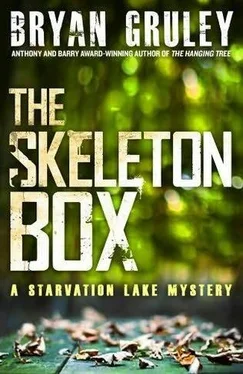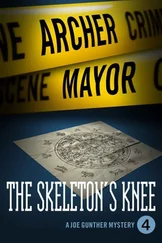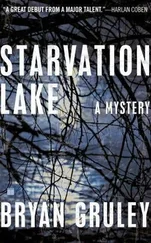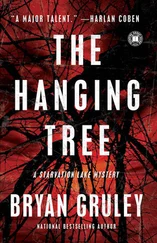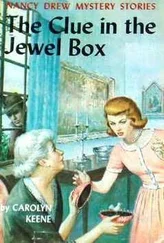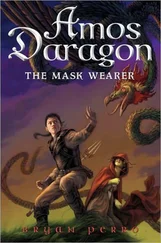Bryan Gruley - The Skeleton Box
Здесь есть возможность читать онлайн «Bryan Gruley - The Skeleton Box» весь текст электронной книги совершенно бесплатно (целиком полную версию без сокращений). В некоторых случаях можно слушать аудио, скачать через торрент в формате fb2 и присутствует краткое содержание. Жанр: Криминальный детектив, на английском языке. Описание произведения, (предисловие) а так же отзывы посетителей доступны на портале библиотеки ЛибКат.
- Название:The Skeleton Box
- Автор:
- Жанр:
- Год:неизвестен
- ISBN:нет данных
- Рейтинг книги:5 / 5. Голосов: 1
-
Избранное:Добавить в избранное
- Отзывы:
-
Ваша оценка:
- 100
- 1
- 2
- 3
- 4
- 5
The Skeleton Box: краткое содержание, описание и аннотация
Предлагаем к чтению аннотацию, описание, краткое содержание или предисловие (зависит от того, что написал сам автор книги «The Skeleton Box»). Если вы не нашли необходимую информацию о книге — напишите в комментариях, мы постараемся отыскать её.
The Skeleton Box — читать онлайн бесплатно полную книгу (весь текст) целиком
Ниже представлен текст книги, разбитый по страницам. Система сохранения места последней прочитанной страницы, позволяет с удобством читать онлайн бесплатно книгу «The Skeleton Box», без необходимости каждый раз заново искать на чём Вы остановились. Поставьте закладку, и сможете в любой момент перейти на страницу, на которой закончили чтение.
Интервал:
Закладка:
“When’s the funeral?” I said.
“Pardon me?”
“You said you were going to Murray and Murray to see about arrangements.”
“Oh, yes. Millie called over there. They said Darlene was handling it.”
I couldn’t imagine how. “I thought you were helping.”
“Dingus arrested the Edwards boy?” She was changing the subject. “Whatever for?”
“I’m looking into it,” I said.
Neat stacks of mail crowded the Pilot ’s L-shaped front counter. The baskets and bouquets were standing on the floor in the corner. Whistler must have tidied up.
“Can you imagine what Bernice would think?”
If she were around, Tatch’s mom would have been at the press conference shouting biblical quotes. “I’ll get to the bottom of it,” I said.
“Good,” Mom said. “Tonight we have to go somewhere.”
The door swung open and the postman dropped a bundle of mail bound with rubber bands at my feet. “Do you need something at the store?” I said.
“No. As soon as it’s dark, we have to go. Before someone else gets there.”
“Someone else gets where?” I said, but Mom had hung up. “Everything’s a mystery,” I said to myself, shaking my head. I turned off my phone and picked up the bundle of mail. “Luke?” I called out. There was no answer.
A turquoise sweater, fuzzy with lint, one button missing, was draped over the back of the stool facing Mrs. B’s computer. I set the bundle on the chair and idly punched the space bar on her keyboard. The screen stayed black.
Mrs. B had stood there greeting customers, trading gossip, taking classifieds, paying the weekly bills until Media North automated the ads and bills and Philo asked me if the Pilot really needed Mrs. B anymore, if we shouldn’t just stand a placard on the counter with a list of phone numbers that visitors could call for their needs. “And who exactly will explain to Mrs. Evangelista why we moved the crossword from A2 to A8 and have her go back out the door smiling?” I had said.
Philo never brought it up again.
Next to Mrs. B’s computer stood three photographs in fake wooden frames she probably had bought off the dollar shelf at the drugstore. One was of Darlene, looking solemn on the day of her graduation from police academy, her hair in a bun, her deputy’s hat cradled in the crook of an elbow. Another showed her as a girl crouched inside an inner tube on a boat dock and throwing her pigtailed head back to laugh as her father tickled her from behind.
The last photo was of Mrs. B with my mother and Soupy’s mom. The frame was etched all around with the words “friends” and “forever.” The women were standing with their arms around one another, my mother at the center, in front of a minivan. I tilted the picture to see their faces better in the shadows. They were all smiling.
I had taken that picture.
It was a Friday in July and I had taken a long weekend off from the Times to come north and see Mom and relax by the lake. I was sitting down the bluff on her dock with the Pilot and a cup of coffee when I heard a woman’s shriek and then another. I dropped the paper and ran up to see Mrs. Campbell, all two-hundred-some pounds of her, lying on her back next to a minivan in Mom’s driveway. She was laughing. Mom and Mrs. B were doubled over laughing. “Curly, Curly, Curly,” Mrs. B kept saying between gasps of laughter, using Mrs. Campbell’s nickname.
“What’s going on?” I said, and all of them laughed even harder. Mrs. Campbell got to one knee. She had a wicker purse the size of an Easter basket looped around one arm. Tears glistened on her plump cheeks. Mom and Mrs. B helped her to her feet. They’d been trying, without success, to lift her into the minivan. “Dear lord, Louise,” Mom said. “If we don’t get you in that van, you’re never going to win that million dollars you promised Angus.” That brought more peals of laughter. I shook my head and was starting back down to the lake when they asked me to snap a photo.
They had been friends for as long as I could remember. Mrs. Campbell would refer to them as the Three Musketeers and Mom would say, on cue, “Oh no, dear, we are definitely the Three Stooges.” Mrs. Campbell was Curly, Mrs. B was Larry, and my mother, of course, was Moe.
Sometime after Soupy’s dad died, July 4, 1997, something happened between them that Mom chose not to speak of, at least not with me. Suddenly they no longer were an inseparable trio. Mom still did things with Mrs. B, and Mrs. B with Mrs. Campbell, but Moe and Curly no longer spoke. Thanksgiving at our house that year was quiet, with too much room around the table in Mom’s dining room. I missed Mrs. Campbell’s creamed onions and cinnamon chocolate cake.
When I asked Mom why Soupy and his mother hadn’t come, she told me she’d simply decided to have a smaller dinner and, as was her practiced habit, avoided further discussion. Darlene and I weren’t really talking at the time, so I didn’t bother asking her, but I did query Soupy, who shrugged and said, “Hell, I don’t know. Chick weirdness. Even when they get old, that shit never stops. They’ll get over it.”
They never did, as far as I could tell. When Mrs. Campbell died the next year, Mom made a brief appearance at the wake but didn’t attend the funeral Mass. “You know I don’t go to church,” she told me.
“What’s the matter with you?” I said. “What about Soupy?”
“It’s none of Alden’s business,” she said.
“What is none of his business?”
“It’s none of yours either. I saw Alden at the funeral home. He doesn’t expect to see me at church, but that shouldn’t stop you.”
Now I picked up the photograph from Mrs. B’s counter. I looked at the smiles the women wore, lacking any trace of vanity or goofy self-consciousness, unlike the smiles men plastered on for photographs. How sad, I thought, that only my mother now remained, that she might never smile so purely again.
I put the photograph back.
I picked up the mail bundle and the rubber band snapped in my hand, the mail spilling across the floor. “Shit,” I said, bending to pick it up.
There were two manila envelopes from adult education at Kepshire Community College; a narrow cardboard box, probably containing a pen in the shape of a baseball bat, from the Detroit Tigers Fan Club of Antrim County; and fifteen or sixteen white envelopes of varying sizes. I riffled through those. One said “Attorney Discipline Board, State of Michigan.” Was some local lawyer in trouble? I slipped it out of the stack.
It was addressed to Lucas B. Whistler.
If I had thought about it for more than five seconds, I probably would have set it on the counter or on Whistler’s desk. I told myself it was also addressed to the Pine County Pilot, of which I was an official representative. Nowhere was it marked “Personal and Confidential.” I remembered the conversation I’d had with Philo about expenses.
I tore the envelope open. I flicked on a desk lamp next to Mrs. B’s computer and scanned the page in my hand. It was dated the prior Friday.
Beneath Whistler’s address it said: “RE: Case No. B-MI-8675309-01. Wayland E. Breck.”
I looked over my shoulder through the newsroom door at Whistler’s desk. At Enright’s, I’d asked Whistler if he knew Breck. Nope, he had said.
The letter didn’t say much: “This is to acknowledge receipt of your February 23, 2000, request for additional information regarding Case No. B-MI-8675309-01. We will evaluate your request and reply as promptly as required by law. Please be advised that, due to staffing shortages necessitated by budget reductions, our backlogs are currently running longer than usual.”
That was all.
I put the letter back in the torn envelope and stood there thinking. Twilight was falling on Main Street. The dim glow from Enright’s glimmered on the Pilot ’s front window.
Читать дальшеИнтервал:
Закладка:
Похожие книги на «The Skeleton Box»
Представляем Вашему вниманию похожие книги на «The Skeleton Box» списком для выбора. Мы отобрали схожую по названию и смыслу литературу в надежде предоставить читателям больше вариантов отыскать новые, интересные, ещё непрочитанные произведения.
Обсуждение, отзывы о книге «The Skeleton Box» и просто собственные мнения читателей. Оставьте ваши комментарии, напишите, что Вы думаете о произведении, его смысле или главных героях. Укажите что конкретно понравилось, а что нет, и почему Вы так считаете.
